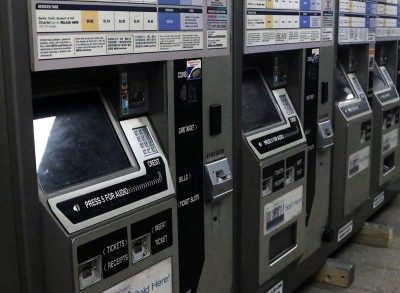
The Massachusetts Bay Transit Authority held a virtual meeting Wednesday to discuss changing fare prices for its services to help improve equity across the city of Boston.
Fare changes include lowering the price for 1-day LinkPasses from $12.75 to $11, allowing second transfers on the subway or bus, introducing monthly passes to all modes for “Reduced Fare Riders” and instituting permanent 5-Day FlexPasses on the commuter rail, among other proposals.
If unanimously approved by the MBTA board in March, the changes would go into effect on July. 1.
The MBTA Board of Directors Audit and Finance Subcommittee discussed the reasoning behind the potential changes at the meeting.
“We had three key goals,” said Lynsey Heffernan, the assistant general manager for policy and transit planning at the MBTA. “One was to target our Reduced Fare Riders, obviously important as we think about equity.”
Heffernan said Reduced Fare Riders include individuals with disabilities, youth under 25 who are low income, senior and other groups.
“We really wanted to fill some of the gaps in our existing fare structure for those individuals in reduced fare groups,” she said.
Heffernan said the second goal concerns reducing fares to bring back riders, which has long term implications for the T.
“We are proposing to expand our offering and allow Reduced Fare Riders to buy monthly passes on the modes which they cannot right now, particularly commuter rail and ferry,” Heffernan said.
Based on the MBTA presentation, 2,000 to 9,000 more riders will be able to use its services due to the expanded monthly passes, with an expected revenue somewhere between $18,000 and $144,000.
Theatrical lighting designer and Brighton resident Evyn Newton said he used to take the Green and Orange lines every day to get to work but now rides the bus every day.
“Making fares accessible is always a good thing, it means more people can take transit without breaking the bank,” he said.
The third goal presented during the virtual meeting is to simplify fare rules.
Previously, riders were unable to transfer between three buses for free, which caused confusion in the past, according to Heffernan.
“We’re trying to make that a little more rational and make it make sense for our riders,” she said.
Speaking to The Daily Free Press, Dorchester resident Eddie Mack said the new changes make him happy.
“I don’t usually use the bus enough times to make the trips worth it, but with those options I’m actually able to pay for less and use it as I may need it. I get the full use out of it now.”
Heffernan explained how changing fare prices could eventually lead to a more equitable transit system.
“In large part how I think about this is the importance of balancing both ridership and revenue, which often play against each other,” Heffernan said. “This work that we have been doing over the last couple of months is really trying to titrate those given the environment that we are in today.”






















































































































